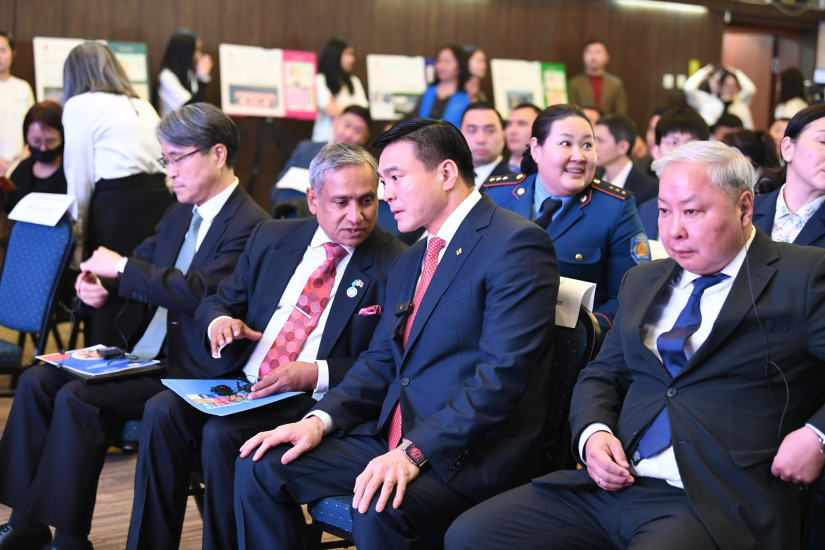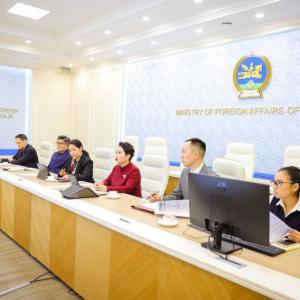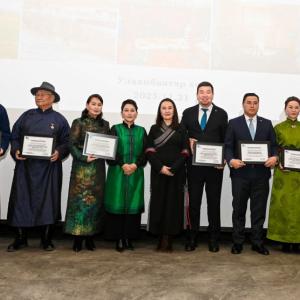Japan and UNICEF to Implement Project Improving Sanitation and Hygiene in Flood-Prone Ulaanbaatar Areas
Society
Ulaanbaatar, April 3, 2024. /MONTSAME/. On April 2, 2024, UNICEF hosted the Launching Ceremony of a Project to Improve Sanitation and Hygiene in Flood-Prone Areas of the city at the UN Building in Ulaanbaatar. The project, funded by a USD 1.8 million from the Government of Japan, will be implemented by UNICEF.
In recent years, the frequency of natural disasters such as droughts, dzud, floods, and earthquakes has been rapidly increasing not only in Mongolia but also worldwide due to climate change.
According to a study by the United Nations, floods in Mongolia cost an average of USD 24 million a year and result in an average of 92 deaths annually. Another study found that over two thousand citizens suffered from the 2023 flood in Ulaanbaatar alone.

In his remarks at the Ceremony, Deputy Prime Minister and Head of the State Emergency Commission of Mongolia S. Amarsaikhan said, “While we successfully navigated the unprecedented "iron/glass dzud*" this winter, the first in 40 years, our focus now shifts to flood prevention. Measures are underway to improve urban planning, repair and rebuild flood control structures, and construct additional ones to mitigate spring flooding. However, addressing the long-term challenges of environmental and soil pollution caused by spring floods, protecting drinking water sources, and safeguarding public health remains an urgent priority. This Project to Improve Sanitation and Hygiene in Flood-Prone Areas of Ulaanbaatar is very timely. As the saying goes, "an ounce of prevention is worth a pound of cure" – every dollar invested in disaster preparedness saves us fifteen on post-disaster recovery. It is crucial to introduce international best practices, quality, and standards in disaster prevention and damage reduction. Leveraging Japan's proven track record in disaster risk science and high-quality sanitation solutions, combined with UNICEF's extensive experience in this field, I am fully confident that Ulaanbaatar's drinking water, sanitation, and hygiene standards will achieve significant improvements. This collaborative effort has the potential to position Ulaanbaatar as a model for other aimags and cities in Mongolia.”
The implementation of the project to be implemented in all nine districts of Ulaanbaatar City is critically important that families and citizens residing in flood-prone areas of the Capital, particularly vulnerable populations, including children, women, the elderly, and individuals with disabilities, will have access to a safe and reliable source of clean drinking water.
To enhance the capabilities of disaster rescue services, the project will equip NEMA of Mongolia with high-performance flood drainage pumps. Additionally, 18 flood-prone areas will benefit from the construction of water supply, sanitation, and hygiene facilities. Furthermore, one thousand education sector personnel will be trained in Japan, strengthening their disaster preparedness skills.
*Iron (or glass) dzud happens when grasses are covered with impenetrable ice that is produced through melted and refrozen snow (most likely occurring during spring and autumn).



 Ulaanbaatar
Ulaanbaatar














































































